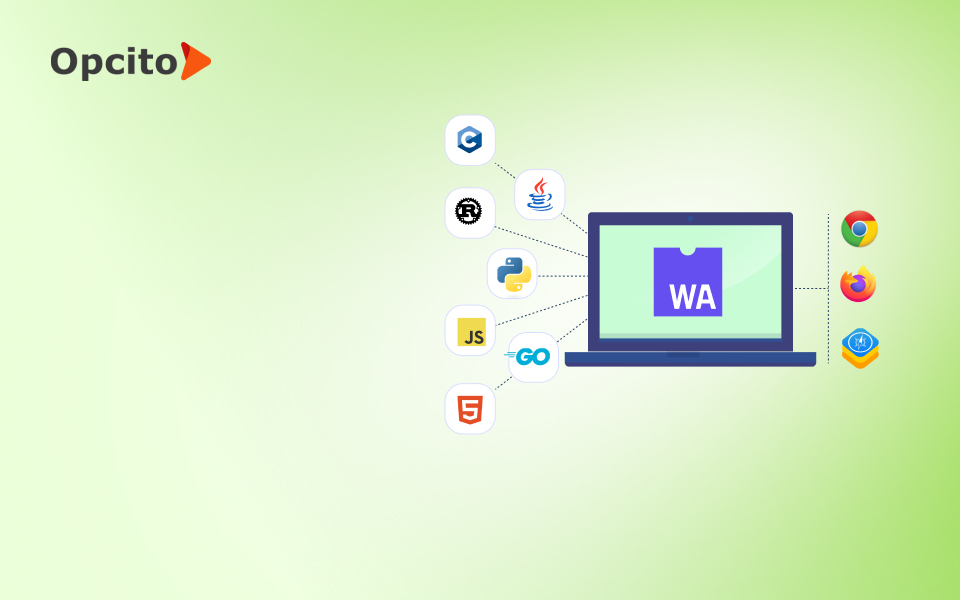Every successful business has three things in common - staying on top of dynamic demands, impeccable service, and exceeding customer expectations. The financial sector is no exception to this. According to a recent survey, 90% of the financial firms reported customer experience as a critical component. Moreover, 80% of banking executives believe that financial services platforms that customers can access via banking applications are the future of finance. These numbers show that digitalization is not a choice but a necessity to thrive in a fiercely competitive financial ecosystem.
Digitization assists financial organizations in coping with the dynamic nature and uncertainties of the market to a considerable extent. However, legacy systems, data sensitivity, governance, security, and compliance requirements can affect the pace of introducing software in the finance industry. Ops teams are increasingly turning towards modern software delivery practices to overcome this problem. Agile & DevOps practices enable small and frequent releases that accelerate customer-centric innovation while building security and quality into the delivery pipeline. When we interact with prospects and clients from Banking and Financial Services Industry (BFSI), we see that approximately 80% use DevOps for some or all of their projects. We fully expect the number to go up in the coming years. However, increasing the overall DevOps numbers in the BFSI may have some challenges.
Challenges in DevOps adoption for Banking and Financial Services Industry
Security and compliance are significant concerns for the financial industry. With faster releases using DevOps, it may sometimes become overwhelming to keep governance and regulatory controls. In addition, in the financial sector, the stakes are always high. Here are some of the highlighting challenges that financial organizations might face during their DevOps journey:
- Higher cost of failure
- Stringent security & compliance requirements
- Integration with third-party tools and platforms
- Full lifecycle governance
- Securely scaling infrastructure
- Slower migration from legacy to modernization
A capable DevOps culture combined with efficient tools, monitoring systems, and workforce can solve most of these challenges. However, the capable DevOps results from a cultural shift, and the cultural change involves some practices that will facilitate effective collaboration between Devs and Ops. Let's see some of the best practices for the finance industry.
DevOps best practices for the finance industry
While the finance industry is embracing DevOps practices, it is crucial to apply the efforts in the right direction. Here are the best DevOps practices that BFSI needs to consider in your DevOps journey.
- Regulation & security compliant Pipeline
Financial organizations often have stringent security and compliance requirements. However, introducing timely compliance checks in all phases of SDLC can facilitate the overall process. A compliant delivery and deployment pipeline can secure against frequent threats. It will also save a lot of time and resources. Standardized CI/CD allows teams to rapidly test products, troubleshoot bugs and issues, and release fully functional applications/changes. Building a pipeline compliant with financial regulations and security helps financial organizations facilitate faster and more secure code deployments.
- DevSecOps
It is no secret that cyber-attacks are a significant threat to the finance industry. DevSecOps helps incorporate security continuously into every stage of the software delivery lifecycle. It helps ensure that software meets all compliance, security, and reliability requirements. Moreover, DevSecOps facilitates automated governance to ensure fully functional & secured codes are deployed, and the overall CI/CD pipeline is threat-free.
- Infrastructure as Code
Financial IT infrastructure typically consists of massive databases, hardware (on-prem & virtual), software, communication technology, and other complementary tools. The infrastructure provides the base for all the information exchange for many business applications. The security requirements and stringent compliance make it challenging to match the dynamic infrastructure and resource requirements, especially during peak hours.
Standardizing infrastructure allocation processes with security and compliance requirements can help a lot. Infrastructure as code is one such practice that can manage and provision infrastructure through machine-readable definition files rather than physical hardware configuration or interactive configuration tools. Teams can create and replicate the same environment while starting a new project without having to program configurations manually. IaC in financial organizations helps to ensure that all infrastructure configurations are well-documented, homogenous, and version controlled. Setting up infrastructure on demand & command enhances team performance and streamlines faster development and deployments.
- Efficient TestOps and determining metrics
The product and service quality is of utmost importance, especially if you are working around money. Release management and testing are an integral part of the DevOps process. Test early test often is another Mantra for BFSI adopting DevOps. It is equally important to check if your efforts are moving in the right direction. Continuous testing and metrics checking assesses risk, ensures end-to-end coverage, and augments product quality. Keeping track of metrics helps get a baseline understanding of your DevOps success.
Ways DevOps is transforming the finance industry
Despite the challenges, businesses are now able to make informed technology decisions that are truly aligned with business goals. Here are the ways DevOps is transforming the finance industry.
- Secured processes by eliminating threats
Security of customer data is of utmost importance. The regulations and compliances are primarily mandated because of the same reason. DevOps has had a fair share of criticism when it comes to security. However, the way it has evolved over the years is genuinely beneficial for financial organizations. DevOps makes it easy to integrate continuous compliances to avoid detrimental data breaches; embracing DevOps practices helps mitigate potential security threats and analyze past incident data to protect against potential threats.
- Faster processes with automation
Since financial organizations are accelerating their DevOps initiatives, automating all processes has become a significant priority to enable scalability and speed, ensuring compliance and higher product quality. Lesser manual processes mean less room for human errors. Automation in the finance sector optimizes resource utilization, enhances productivity & product quality. It also augments cross-project and enterprise-scale management and visibility in financial services. The visibility and insights into the pipelines enable organizations to get involved and ensure a smoother process flow to production.
- Drive the cultural transformation
Traditional methods have their pros and cons. With Agile and DevOps culture empowering teams to take charge of responsibilities and automate repetitive tasks, financial organizations can now look forward to more streamlined delivery and deployments. DevOps is more than just changing technological processes. The entire financial landscape is noticing a change. Considering the growth of digital-only banks and omnichannel experience, the financial services industry is adjusting to the needs of the modern business world and harnessing the benefits of DevOps.
- Orchestration
Instead of pointing fingers for responsibilities, DevOps breaks the functional silos between Dev and Ops. With less friction and more coordinated efforts, orchestrating all the software delivery aspects has become easier than ever. Financial organizations are often big entities with extensive geographic reach. To facilitate visibility and transparency across teams, effective communication is imperative. DevOps accomplishes this by scaling the latest IT processes across the entire organization and eliminating barriers across geographically sited units.
With increasing demands of uninterrupted services and customer service standards, we are likely to see the finance industry embrace a more agile approach in the coming years. Financial organizations can rip the benefits of embedded security across all stages of the delivery pipeline, scaling IT processes, breaking down the functional silos, collaborating effectively, staying on top of market trends, and meeting the pace of customer excellence demands.






























